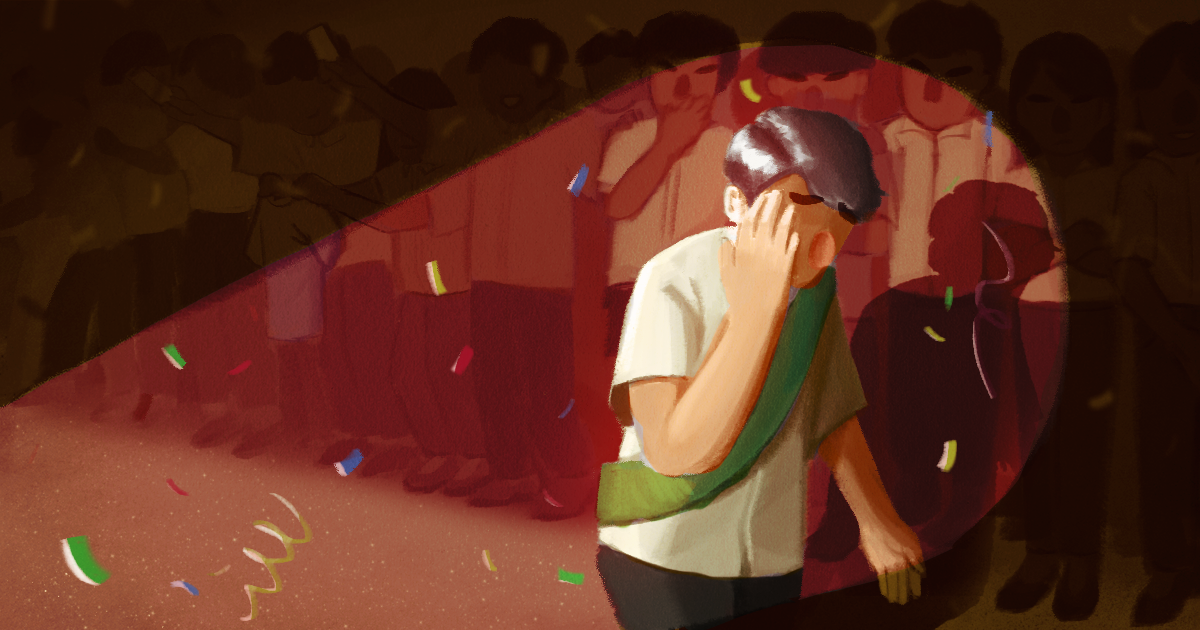
Student leaders are known to be the epitome of leadership and service—those who take ownership of their responsibilities, transparency in their actions and decisions, and consistently demonstrate reliability and integrity to gain the trust and respect of the people they serve. However, with the recent controversies and responses to what they’re faced as face-to-face activities resume, it has exposed that some of these leaders are nothing but self-serving individuals who have little regard for the interests of their constituents.
Accountability
One of the most disturbing possibilities that can happen in student governments is when these student leaders turn to blame their constituents for their failures. Instead of taking full responsibility for their incompetence, they deflect, and accuse the very people they should be serving of being at fault, letting them play the bad role for complaining, thereby absolving themselves of any responsibility for their actions.
During the De La Salle Lipa’s (DLSL) 60th Foundation last February, student leaders faced backlash from the set of booths that they prepared, how they ran their programs, and how they treated the people who served in their activities.
The College of Student Organizations (CSO), in particular, received a complaint from the Centerfold, for requiring them to sell tickets despite being performers for their event. As the matter continued to escalate, Jed Magsino, CSO Chairperson, shared a fair share of sentiment as the representative of CSO during an interview.
The blame game has no place in leadership, and those who engage in it shouldn’t be where they are placed.
In his interview, he denied the band’s allegations, pointing out that it wasn’t their intent but the acceptance letter that they sent to the performers said otherwise. Additionally, the statements from his interview were notable as he expressed how he was offended, forgetting that he was, in fact, speaking for the rest of the student leaders. Isn’t he supposed to set aside his personal takes first?
This is a clear lack of leadership skills and a gross violation of the trust bestowed upon them by their constituents. Student leaders who engage in such behavior are not fit to hold office and should be held accountable for their actions.
The blame game has no place in leadership, and those who engage in it shouldn’t be where they are placed.
Transparency
As student leaders, it is their duty to represent the interests of the student body and create a positive and inclusive environment on campus. However, this cannot be achieved without a commitment to transparency and open communication.
Unfortunately, there were instances where student leaders show little to no transparency to students. When I wrote the article concerning Centerfold and CSO, I intended to dig deeper into what happened during the Echoes concert but I soon found out that CSO made its facilitators and volunteers sign a Non-Disclosure Agreement (NDA). The very moment that these organizations made them sign an NDA means that they don’t intend to show transparency to students. The question is, what details need to be classified from an activity funded by students’ tuition fees?
By the way, a portion of the proceeds from this year’s Echoes is supposed to be allotted to CSKolars, a program intended to support the youth beneficiaries, but why aren’t we getting any updates?
Transparency not only builds trust, but it also ensures that students are well-informed and engaged in the governance process. Without it, mistrust and frustration will happen among the student body, and ultimately undermine the effectiveness of student governance.
Furthermore, it seems like the DLSL Student Government (SG) has gone silent this term. What happened to the frequent surveys they used to conduct to check on students?
As the Lasallian Cup, an event organized by the SG, returns to campus, students have been expressing their dissatisfaction with the 410-peso participation fee. Initially, the fee required involvement from all levels but due to the backlash from graduating students, it has now become mandatory only for first to third year students.
Upon closer inspection of the required payment breakdown for the LS Cup, it becomes apparent that students are being charged for a lanyard, a college shirt, and a separate solicitation fee. The SG published a survey last October to determine whether students were willing or interested with the proposed breakdown of the participation fee and yet, they only released the results after the payment deadline. Is the only reason for releasing the results an attempt to address the complaints that they have been receiving recently?
Frankly, it’s concerning that the SG doesn’t seem to have any sort of contingency plan or fund to finance their own activities. It’s not the students’ responsibility to foot the bill for the SG’s endeavors, especially when there has been no consistent transparency from them as the LS Cup returns to campus.
Instead of advocating for a fairer budget allocation, did our student leaders choose to transfer the burden to us? What has become of the student government’s role in representing our interests?
Transparency not only builds trust, but it also ensures that students are well-informed and engaged in the governance process. Without it, mistrust and frustration will happen among the student body, and ultimately undermine the effectiveness of student governance. Without trust, students may feel disconnected from their leaders and their actions, leading to apathy and disengagement from campus
Reliability
The recent controversy surrounding the hefty participation fee for the Lasallian Cup raises questions about the actions of the SG. In their defense they said that the school administration has reduced their budget from 350 pesos to 150 pesos, leading to the decision to impose the fee on students.
Instead of advocating for a fairer budget allocation, did our student leaders choose to transfer the burden to us? What has become of the student government’s role in representing our interests?
Lastly, these student leaders should prioritize verified and official platforms to communicate with their constituents. Responding to issues on an unverified and unofficial platform such as the DLSL Freedom Wall Facebook page, which is primarily used for entertainment purposes by both DLSL and non-DLSL students, may raise doubts about the accuracy and credibility of the information, as well as the legitimacy of those raising the concerns. Why won’t these student leaders release their official statements on official accounts, such as the SG Facebook page, to not only ensure that the information they provide is reliable and legitimate, but to also make sure they are actually reaching the DLSL student body?
These issues have been on their plates for a long time now and have given consistent disappointment to their constituents. Can we still rely on these student leaders? I hope we can, or be able to before their terms end. It’s about time that these student leaders step up and fulfill their duties to represent the student body. They should be more accountable, transparent, and reliable. Otherwise, what’s the point of having these student leaders in the first place?
***
As face-to face activities resume on campus, it is understandable that everyone is still adjusting to the new ways of doing things this school year. However, this should not be an excuse for student leaders to display incompetence in fulfilling the responsibilities they signed up for. With their line of work, they shouldn’t expect that their constituents would only be the type of people to say “let us commend SG” or “Ang galing niyo naman CSO, saludo kami sa inyo!”.
At the end of the day, these sentiments, and grievances are valid feedback from the student body and student leaders must take them seriously if they wish to be effective in their roles.


Very bold of you, Windang